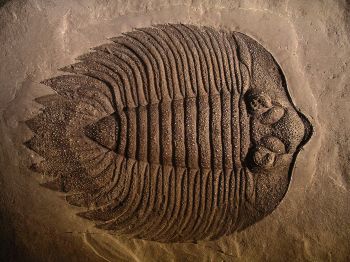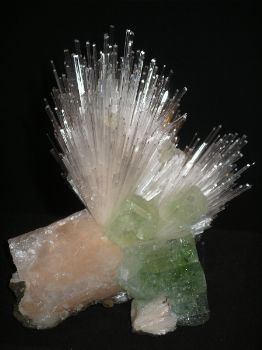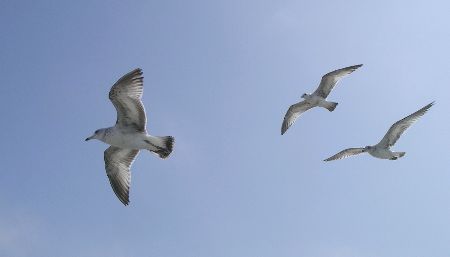
 I recently read a novel, The Elegance of the Hedgehog by Muriel Barbery, in which questions are asked about the value of a person's existence. An extraordinarily intelligent twelve-year-old girl decides that if she cannot find anything in life truly meaningful, beyond what might be relevant for a conscious protozoan, for instance, she will take the logical next step and kill herself by her thirteenth birthday. Most of what passes for relevance in our culture, she decides, is actually illusory, as if we had all convinced ourselves there really is a Santa Claus. Instead, in her philosophy, we are simply animals, and so we might as well admit it and express our true natures, our basic intentions, urges, and modes of behavior, such as to eat-drink-eliminate, procreate-protect young-nurture, be aggressive-defend against aggression-flee, etc. These, she surmised, are not that complicated and may be listed on one hand.
I recently read a novel, The Elegance of the Hedgehog by Muriel Barbery, in which questions are asked about the value of a person's existence. An extraordinarily intelligent twelve-year-old girl decides that if she cannot find anything in life truly meaningful, beyond what might be relevant for a conscious protozoan, for instance, she will take the logical next step and kill herself by her thirteenth birthday. Most of what passes for relevance in our culture, she decides, is actually illusory, as if we had all convinced ourselves there really is a Santa Claus. Instead, in her philosophy, we are simply animals, and so we might as well admit it and express our true natures, our basic intentions, urges, and modes of behavior, such as to eat-drink-eliminate, procreate-protect young-nurture, be aggressive-defend against aggression-flee, etc. These, she surmised, are not that complicated and may be listed on one hand.
What, then, she wonders, is the purpose of art or beauty? Ultimately, we simply die, like any other animal, and death lasts a very long while. How do writing, dance, music, photography, sculpture, or painting advance the cause? Are they merely comforting distractions from a brutal truth, that life is meaningless, hard, or painful, and then we cease to exist? Of course we get caught up in our roles, as parents and providers or defenders of one's troop/tribe/nation, for instance, but, since we are merely fulfilling our biological imperatives, the same as if we were lizards or shrews, in the end, what difference does it make?
Our so vaunted smarts, she explains, are not actually all that special. They represent our only weapons against a natural world that, in their absence, would just kill and eat us, not necessarily in that order.
In the course of the book, she comes to see the shallowness of this point of view and gives herself a reprieve from the option of suicide. It is not as though her questions are bogus, however. Rather, even if existence is in general ultimately purposeless, it has its moments, and they can be, often are in fact, full of great beauty if we but allow ourselves to truly experience them, so much so, indeed, that they are like bits of the eternal we can appreciate in the face of oblivion's negation of all that we are. The real purpose, then, of appreciating or creating beautiful and artistic expressions, she asserts, is as pearls of "ever" in the midst of "never."
Presented with evidence of all the mayhem in our world, rape statistics, Nazi genocides, recent atrocities in Nigeria, gang member murders in most of our major cities, and much more, it is hard to argue that we are not still essentially animals.
And whether or not we believe in a Higher Power or God, it is easy to see that most if not all we find personally meaningful will one day be wiped out by neurological damage or death.
 Yet, as the book's young protagonist, Paloma, suggests, there are in many moments before such a fate opportunities to "grok" and/or express the absolute beauty within and around us. This may take the form of appreciating the perfection in another, a completeness that transcends smaller details like whether or not he or she has been a good little boy or a good little girl. Or we may notice the exquisite, artistic rightness of a seashell's shape, glory in either the awesome power of a looming tornado or the poignantly gentle touch of a breeze upon a pond's surface, wonder at a snowflake's unique artistry, enjoy a person's unsolicited act of kindness, realize an intuitive understanding that suddenly captures exactly a situation which a moment before seemed incomprehensible, and so on.
Yet, as the book's young protagonist, Paloma, suggests, there are in many moments before such a fate opportunities to "grok" and/or express the absolute beauty within and around us. This may take the form of appreciating the perfection in another, a completeness that transcends smaller details like whether or not he or she has been a good little boy or a good little girl. Or we may notice the exquisite, artistic rightness of a seashell's shape, glory in either the awesome power of a looming tornado or the poignantly gentle touch of a breeze upon a pond's surface, wonder at a snowflake's unique artistry, enjoy a person's unsolicited act of kindness, realize an intuitive understanding that suddenly captures exactly a situation which a moment before seemed incomprehensible, and so on.
A physicist whose books I enjoy, Brian Greene, suggests that, from the perspectives of math and science, there is no particular significance to what we call the present as distinct from the past or the future. Instead, all of these are merely names we give to the temporal continuum as subjectively apprehended, our experience of time's flow. That which was or will be is, in this view, not different from what is now. Rather, they all simply are, at once, in an unbroken everpresence. All we have, though, and it may be enough, is our one instant at a time awareness of that endlessness. Yet if we can, then, in our fleeting moments capture or convey the art or beauty therein, it is, at least for that briefest split-second, like having our "heavenly" cake of eternity and eating it too.